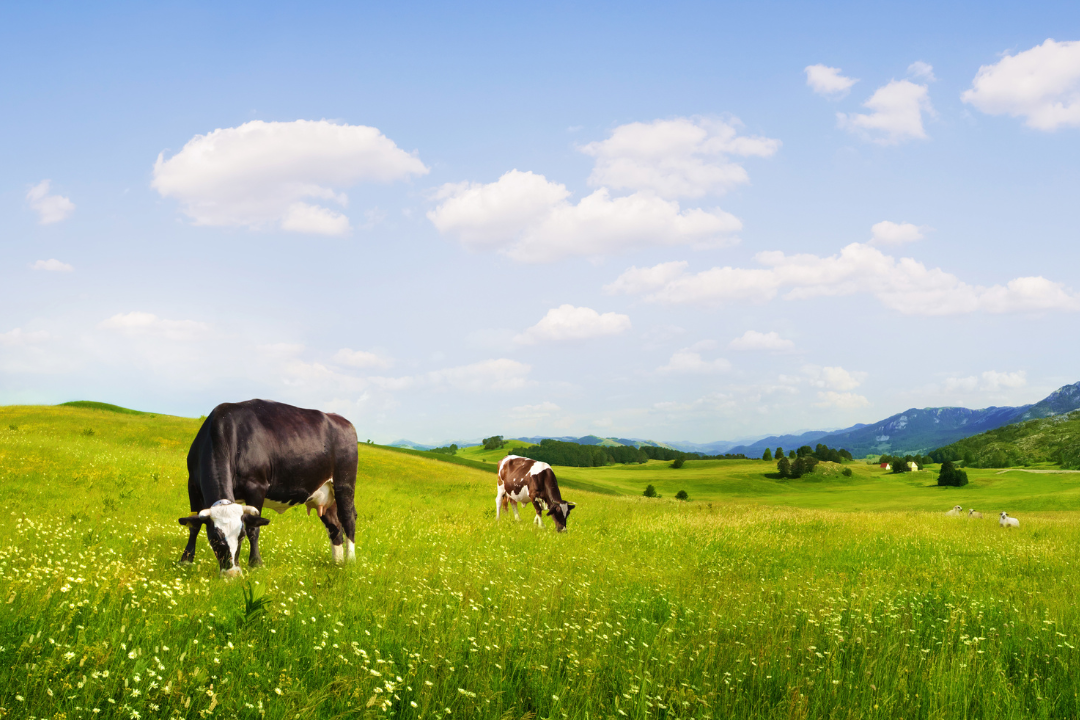
What Does Organic Mean? Understanding Its Impact on the Environment and Human Health
Share
The term "organic" has become increasingly common in our conversations about food and sustainability, but what does it really mean? Organic farming and products go beyond the absence of synthetic pesticides and fertilisers, encompassing a holistic approach to agriculture that prioritises environmental health, animal welfare, and human well-being. In this post, we’ll explore what organic means, how it impacts the environment and human health, and provide some valuable stats and tips on embracing an organic lifestyle.
What Does Organic Mean?

Organic farming adheres to principles that promote ecological balance and conserve biodiversity. Here are the key elements that define organic agriculture:
- No Synthetic Chemicals: Organic farming avoids synthetic pesticides, herbicides, and fertilisers. Instead, it relies on natural alternatives and practices that enhance soil and plant health.
- Non-GMO: Organic products are free from genetically modified organisms (GMOs), ensuring that the food is natural and unaltered by modern genetic engineering.
- Animal Welfare: Organic farming standards require that animals are raised in conditions that allow for natural behaviours, with access to the outdoors and organic feed.
- Sustainable Practices: Organic farming practices aim to maintain and improve soil fertility, reduce pollution, and promote the use of renewable resources.
Environmental Impact

Organic farming has a profound positive impact on the environment. Here’s how:
1. Soil Health
- Improved Fertility: Organic practices, such as crop rotation and composting, enhance soil fertility and structure. This leads to healthier plants and better yields.
- Reduced Erosion: Techniques like cover cropping and reduced tillage prevent soil erosion, maintaining the integrity of the land.
2. Biodiversity
- Habitat Preservation: Organic farms provide habitats for a variety of wildlife, including beneficial insects, birds, and small mammals. This biodiversity is crucial for ecosystem health.
- Pollinator Support: By avoiding harmful chemicals, organic farms support pollinators like bees and butterflies, which are essential for the pollination of many crops.
3. Water Conservation
- Reduced Pollution: Organic farming reduces the risk of water contamination by avoiding synthetic pesticides and fertilisers, which can leach into waterways and harm aquatic life.
- Efficient Use: Organic practices often include water conservation techniques, such as drip irrigation and rainwater harvesting.
Human Health Benefits

Eating organic foods can have several benefits for human health:
1. Nutrient-Rich Foods
- Higher Nutrient Levels: Some studies suggest that organic foods can have higher levels of certain nutrients, such as antioxidants, which are beneficial for health.
- Fewer Pesticides: Organic foods are free from synthetic pesticide residues, reducing your exposure to potentially harmful chemicals.
2. Reduced Antibiotic Resistance
- No Routine Antibiotics: Organic farming prohibits the routine use of antibiotics in animal husbandry. This helps reduce the risk of antibiotic resistance, which is a growing public health concern.
3. Better Overall Health
- Fewer Chemicals: Reducing your intake of synthetic chemicals through organic food can lead to better overall health and lower the risk of certain diseases linked to pesticide exposure, such as cancer and hormone disruption.
Important Statistics

- Soil Health: Organic farms have been found to have 30% more biodiversity in their soil compared to conventional farms.
- Pesticide Exposure: A study published in Environmental Research found that switching to an organic diet reduced pesticide exposure by 70% in just six days.
- Market Growth: The global organic food market is expected to grow from £95 billion in 2020 to £187 billion by 2027, reflecting increasing consumer demand for healthier and more sustainable food options.
Tips for Switching to Organic
- Start Small: Begin by switching to organic for the most pesticide-laden foods, often referred to as the "Dirty Dozen" (e.g., strawberries, spinach, apples).
- Shop Local: Support local organic farmers by shopping at farmers’ markets and joining a Community Supported Agriculture (CSA) scheme.
- Grow Your Own: Start a small organic garden at home. Even a few pots of herbs or vegetables can make a difference.
- Read Labels: Look for certified organic labels on food products to ensure they meet organic standards.
- Educate Yourself: Learn more about organic practices and their benefits through books, documentaries, and reputable online resources.
Thank you!
Dear readers,
Thank you for taking the time to learn about what organic means and its profound impact on our environment and health. I hope this post encourages you to consider more organic choices in your daily life. Your commitment to a healthier, more sustainable world is truly inspiring.
For more insightful tips on sustainable living, nourishing recipes, and the magic of herbal remedies, please sign up for our newsletter and be sure to check out our organic herbal teas section on the website: Organic Herbal Teas.
Wishing you all the best in your journey towards a healthier lifestyle!
With love,
Leyla Jane
www.petalandherb.love
